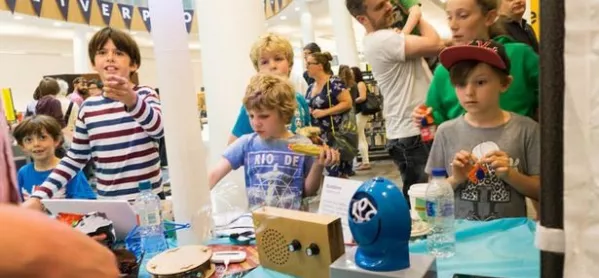Caroline Keep retrained to become a physics teacher, having previously worked as a geotechnical engineer. During her PGCE year, she helped to organise a festival to promote science, technology, engineering, art and maths (Steam) and maker-education for young people. Called Liverpool MakeFest, it is now in its fourth year. In her PGCE year Caroline also published her first education paper - “The Tardis Effect: mobile phones and Stem teaching”.
Two years ago, Caroline joined Future Tech Studio School in Warrington as a NQT. She quickly engaged her pupils by promoting hands-on learning via Arduino and RaspberryPi technology, which led to her class winning the regional Big Bang contest and heading
to the national finals in Birmingham with a nuclear waste robotics project. Her school won an Educate to Innovate award that year as a result of this achievement. Caroline also won the Amaze Award for digital excellence with a RaspberryPi weather station project. She achieved her first 100 per cent pass rate for physics that year and, in addition, published a second academic paper.
Unfortunately, Caroline’s school was closed in the summer of 2017. However, she was quickly snapped up by Penketh High School, where she reorganised the physics curriculum, before opening the first state school “makerspace” in the UK.
The judges commented: “Caroline stood out as she is such an inspirational role model - both for other new teachers and for pupils. As such an enthusiastic and knowledgeable champion for Steam learning, her impact in a relatively short time has been phenomenal both in its reach and in its excellence. Her drive, determination and passion for teaching shines out of all she does.”
For the full list of winners, click here, and keep up-to-date will the glitz and glamour of the night with #TesAwards10.




